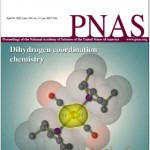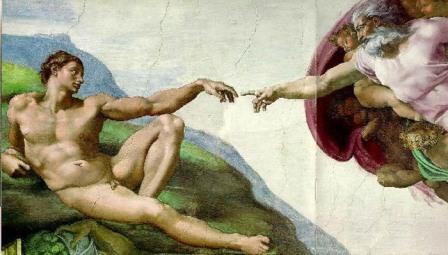|
Chance Inadequate
|
Michael Denton writes:
"The complexity of the simplest known type of cell is so great that it is impossible to accept that such an object could have been thrown together suddenly by some kind of freakish, vastly improbable, event. Such an occurrence would be indistinguishable from a miracle." (Michael Denton, Molecular Biologist, Evolution: A Theory in Crisis, Adler and Adler, 1985, p. 264.
Which then is the greater act of faith - to believe the odds against a single living cell (10 40 or 10 390 depending on who you believe) were overcome by raw chance, or to believe in God's purposeful action?
10 40 represents a chance of 100,000,000,000,000,000,000,000,000,000,000,000,000,000 to 1
10 390 represents a chance of 10,000,000,000,000,000,000,000,000,000,000,000,000,000,000,000,
000,000,000,000,000,000,000,000,000,000,000,000,000,000,000,000,000,000,000,000,000,000,
000,000,000,000,000,000,000,000,000,000,000,000,000,000,000,000,000,000,000,000,000,000,
000,000,000,000,000,000,000,000,000,000,000,000,000,000,000,000,000,000,000,000,000,000,
000,000,000,000,000,000,000,000,000,000,000,000,000,000,000,000,000,000,000,000,000,000,
000,000,000,000,000,000,000,000,000,000,000,000,000,000,000,000,000,000,000,000,000,000,
000,000,000,000,000 to 1.
You may want to count the zeros. It's part of due diligence in evaluating the ground on which you stand.
Believing such odds take faith too, more than most who believe them may imagine. Many who believe them don't understand the mathematics involved or why they should trust those who say it's a reasonable change. (Atheists who do, have taken to claiming the odds against forming a single protein molecule by chance [10 113] can't be calculated, therefore we don't have to worry about the irrationality of it.)
Then, even if the "odds" were overcome by chance, what are the chances
that one cell would survive, let alone reproduce?
Consider this from an article on biochemical evolution
published in the Proceedings of the National Academy of the Sciences:
"Problems recur with hypotheses for the assembly of the earliest molecules with the properties commonly associated with "life." These include the unlikelihood that complex self-replicating molecules such as RNA could form by chance encounters even over geological time; the difficulty of protecting such molecules, once formed, from dilution and destruction by high temperatures, hydrolysis and ultra-violet radiation; and finally the difficulty of imagining how self-organization alone could lead to the encapsulation of a complex hierarchy of biochemical reactions in a membrane to form the simplest unicellular organism."
Faith in chance alone is faith also, and, I would suggest for your consideration, in fact a greater leap of credulity than is the possibility that One existed prior to the universe and brought it, and us, about.
Some who recognize the intelligence behind the creation of humans says:
"a detailed analysis that the human genome displays a thorough precision-type orderliness in the mapping between DNA's nucleotides and amino acids. 'Simple arrangements of the code reveal an ensemble of arithmetical and ideographical patterns of symbolic language ... Accurate and systematic, these underlying patterns appear as a product of precision logic and nontrivial computing."
Thus, Vladimir I. Shcherbak of al-Farabi Kazakh National University of Kazakhstan, and Maxim A. Makukov of the Fesenkov Astrophysical Institute, go further by stating that:
"an intelligent signal embedded in our genetic code would be a mathematical and semantic message that cannot be accounted for by Darwinian evolution." (http://creation.com/dna-created-by-aliens)
The speculative and unwarranted conclusion that we therefore originate with aliens is both unnecessary and violates the scientific law of parsimony which directs us to the simplest explanation matching the facts. The reality is that supposed aliens also require an origin and therefore take us no closer to the ultimate answer of our origin. The biblical revelation of the creator God who not only creates but redeems is far less fanciful.
The universe itself points to the One behind it who is orderly and purposeful and intentional. Out of the mind and purpose and love of that Being, who is both transcendent to the universe and imminent in it, has come the universe, our world, life itself and us. And with our creation come accountability to the One who brought us into being.
You can know this Being because God desires to be known and has taken steps to which you can respond.
Other reading:
Lee Strobel, Case for A Creator. Strobel was a atheist journalist who became a theist based on the evidence.

